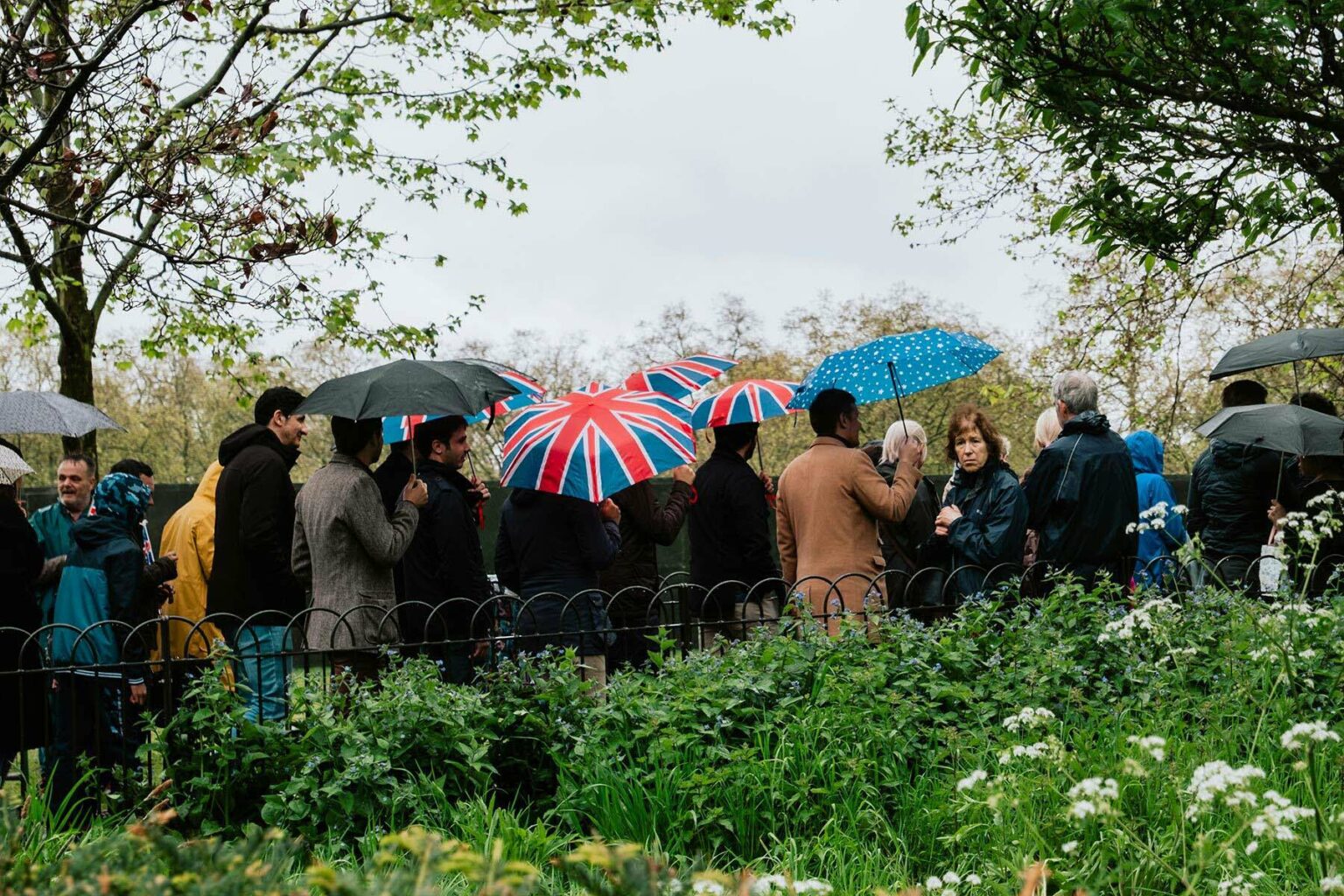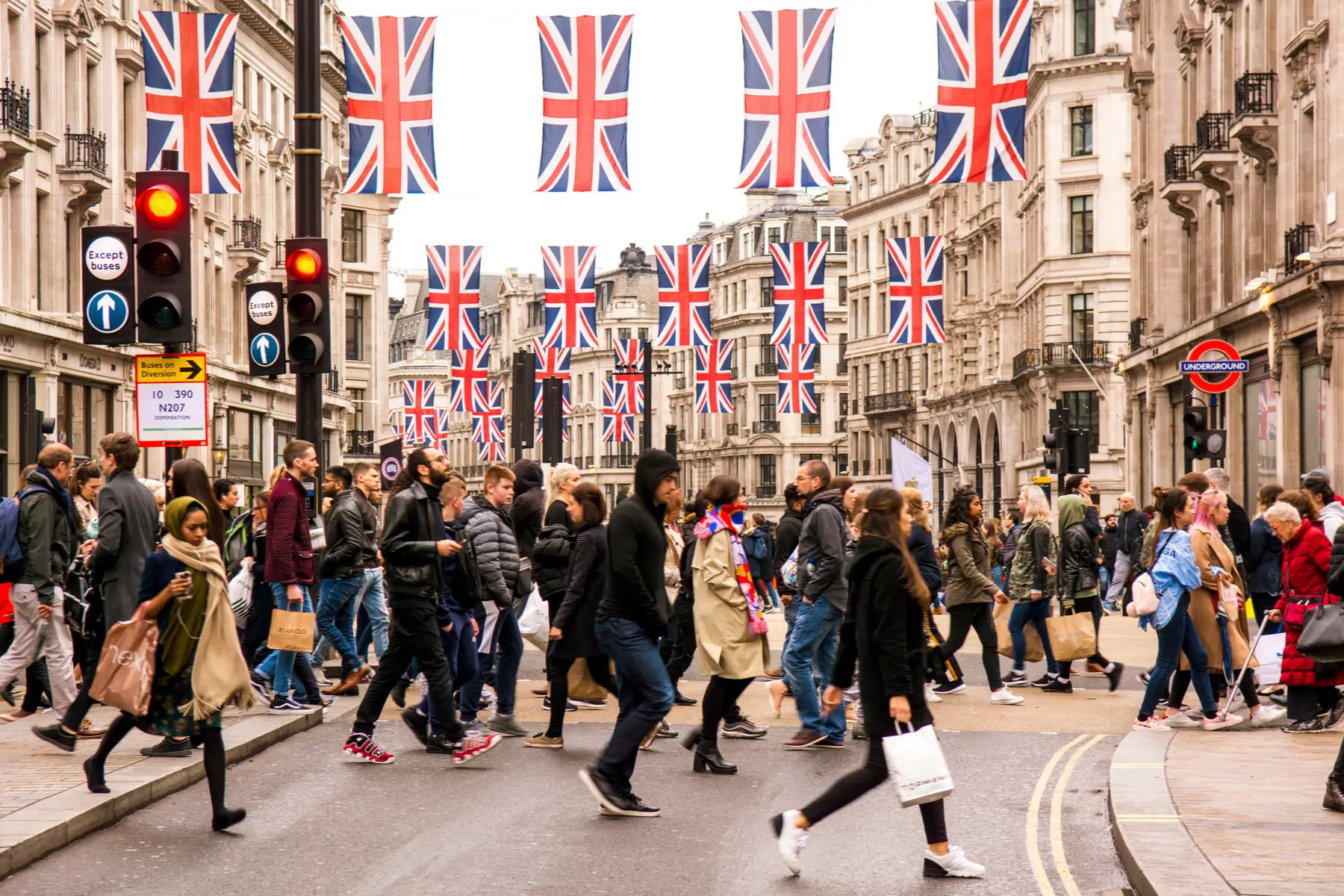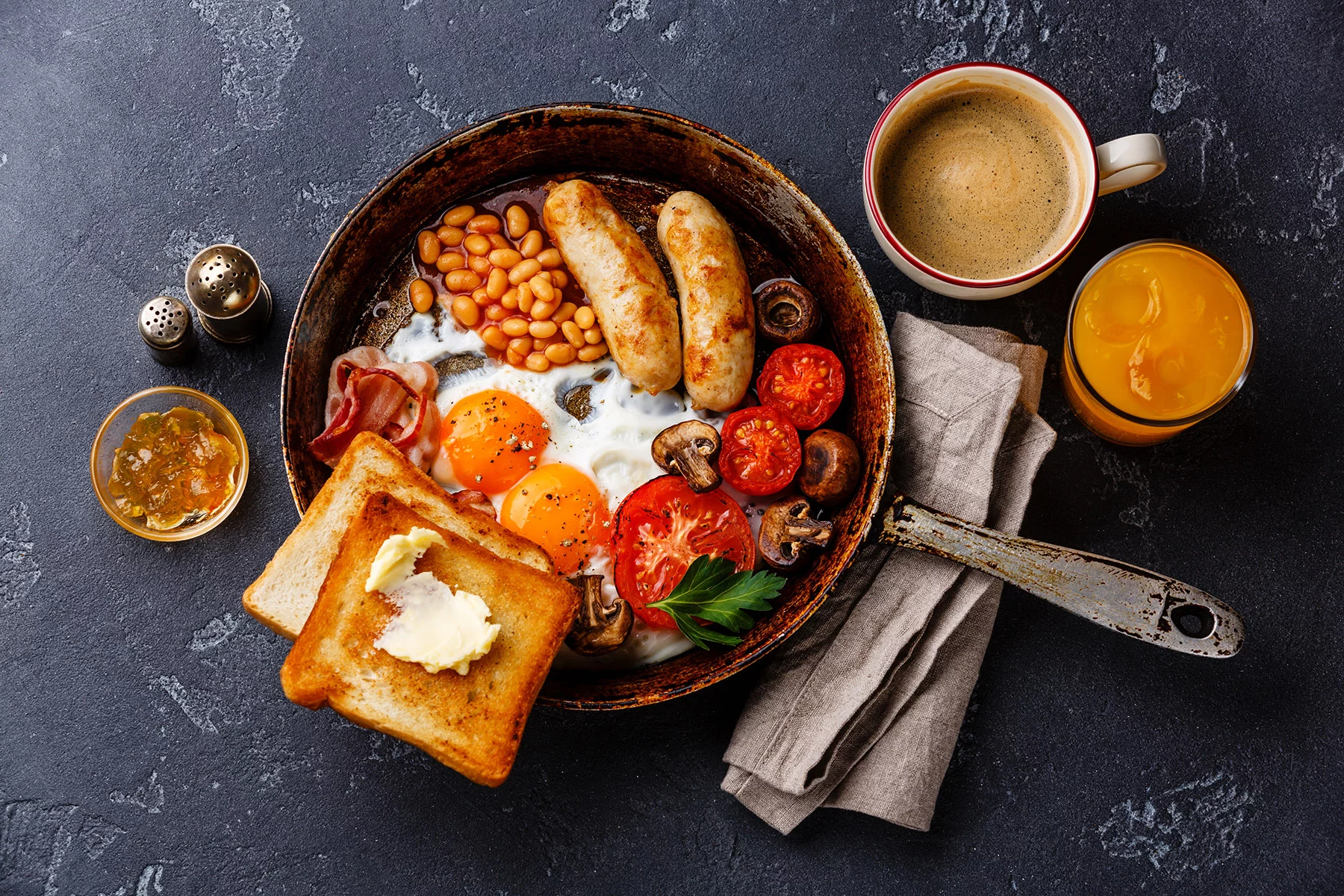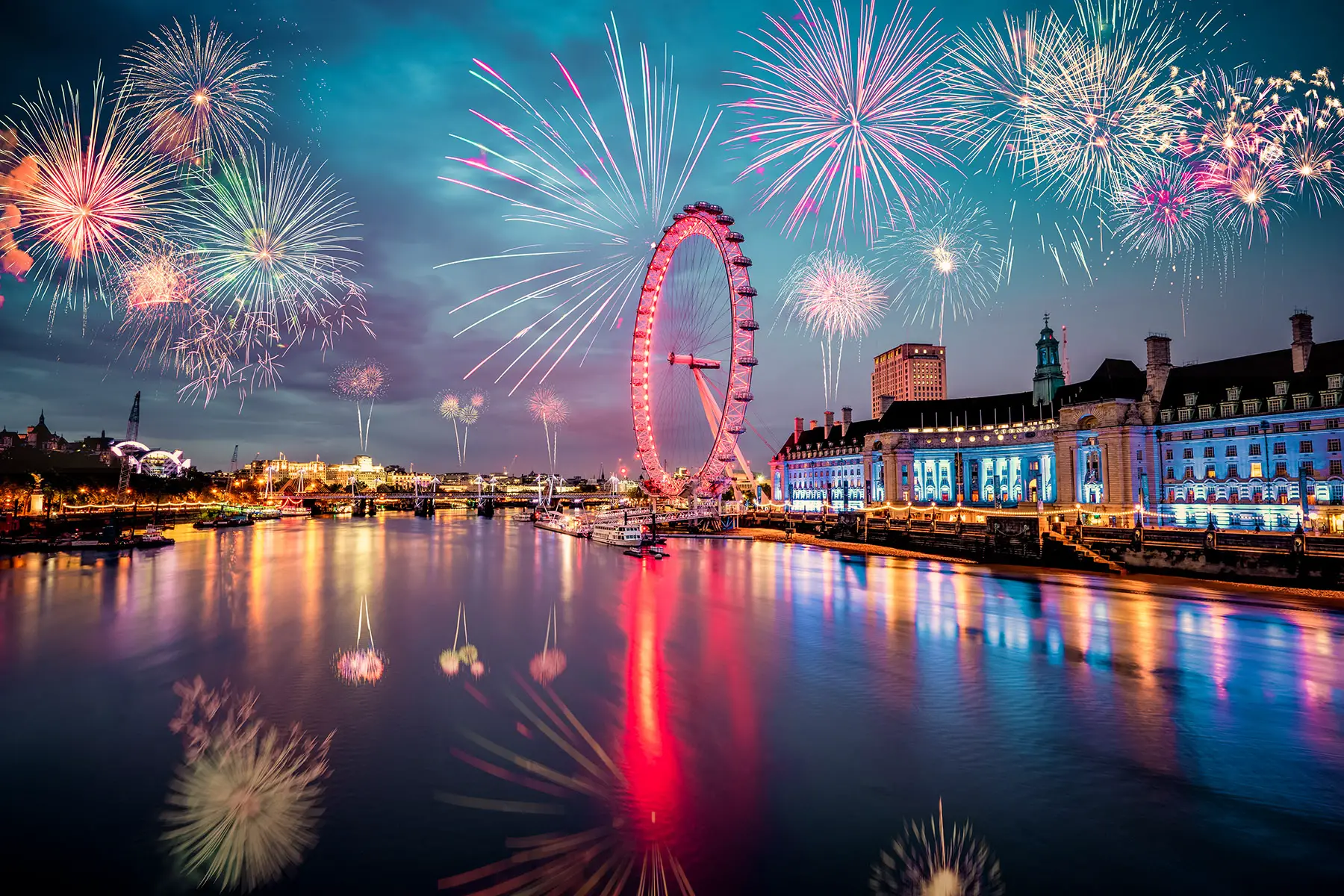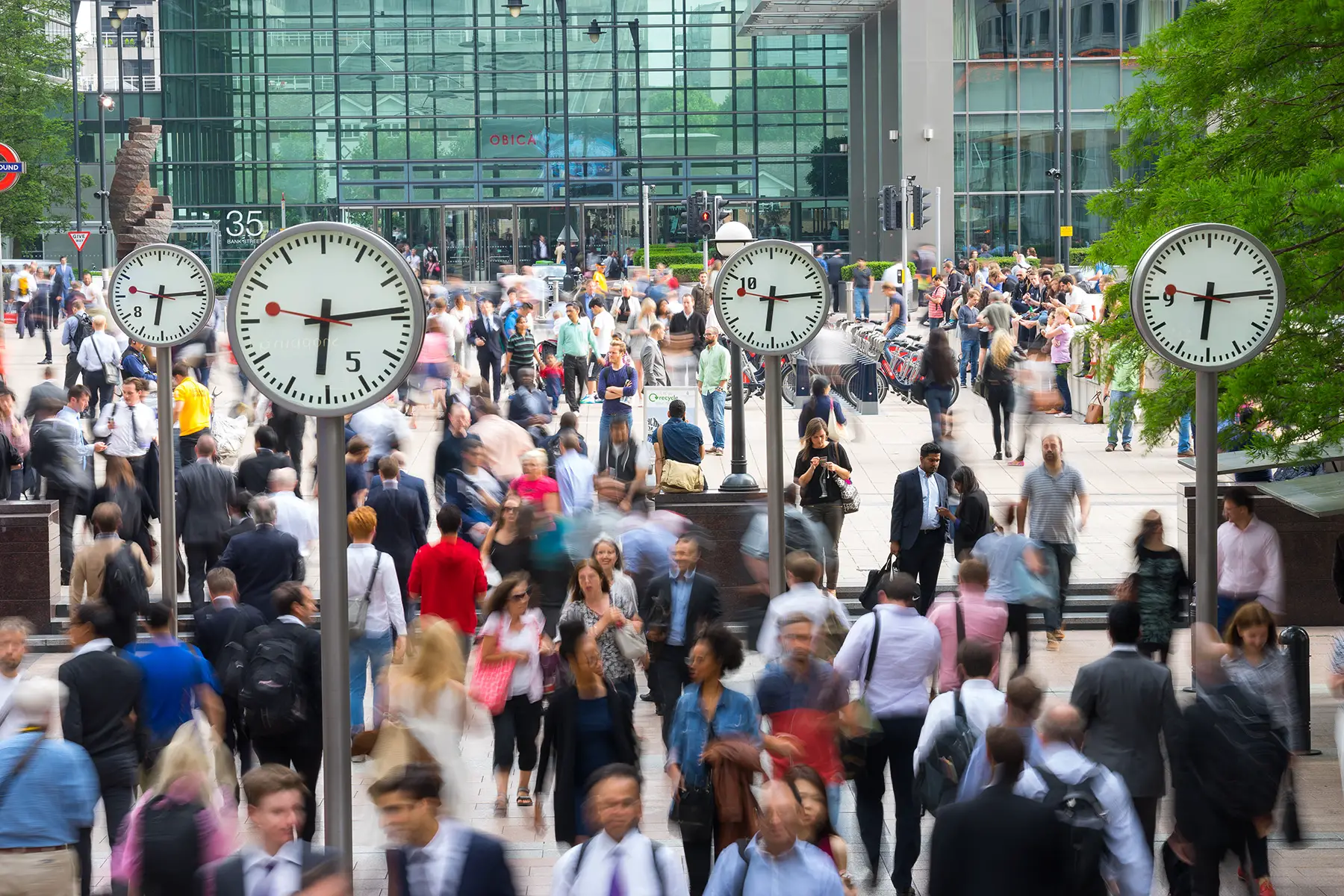The UK prides itself on social etiquette and manners. Its culture, history, and traditions shape the way people behave in society.
Although there is a certain stereotype about the UK having hard and fast rules regarding social conduct – a “polite society” attitude where there is a right and wrong way of doing things – it is actually a fairly liberal country. You likely won’t have to worry too much about offending sensibilities when socializing, whether in fancy restaurants or important work meetings.
That said, as with any country, the UK has many social standards and norms. In addition, some things are best avoided when meeting new people or engaging in social situations. Find out all about good British etiquette by reading the following sections:
- British culture, society, and etiquette
- Attitudes towards women and gender roles in the UK
- What is the British etiquette when meeting and greeting people?
- Conversation and communication in the UK
- Clothing and dress code in the UK
- What is the British etiquette when dining?
- How do people socialize in the UK?
- Relationships in the UK
- What are the most common occasions for celebration in the UK?
- Is there a distinct work and business culture in the UK?
- Shopping and services in the UK
- Regional variations
- Useful resources
Sirelo
It’s no secret that moving abroad can be stressful. Sirelo’s team of removal advisers is here to help. They provide five free quotes from international shipping companies so you can find the best options at the best prices. Take the stress out of your relocation to the United Kingdom with Sirelo.
British culture, society, and etiquette
Cultural history and language
The country we know as the United Kingdom has been in its current form since 1922, but its culture has much older roots. The idea of a distinct British ‘identity’ began to emerge in the early 19th century, but it is usually associated with England more than the other nations. Indeed, Wales, Scotland, and Northern Ireland have a stronger localized culture.
The UK’s official and most commonly spoken language is English. Welsh, Scots, Scottish Gaelic, and Irish are minority languages in the constituent parts. According to the 2021 Census of England and Wales, 91.1% speak English or Welsh as their primary language. Other common languages include Polish (1.1%), Romanian (0.8%), Panjabi (0.5%), and Urdu (0.5%).
The UK is a predominantly Christian country. Protestantism (mainly Anglicanism or Presbyterianism) is the most common form everywhere except in Northern Ireland, which has more Catholics than other denominations. The 2021 Census found that 46.2% of people in England and Wales identified as Christian, while 37.2% said they had no religion. The other most common religions are Islam (6.5%) and Hinduism (1.7%).
Social class and values
A major part of British culture that can surprise newcomers is the Brits’ seeming fascination with social class. Although not an official hierarchy, social structure plays an important role in culture and outlook. According to a 2021 Social Mobility Commission survey, 48% of people consider themselves working class and 36% middle class.
People in the UK tend to be relatively liberal and respect each other’s freedoms and differing opinions. Noted British values are tolerance, fairness, and stoicism. The country ranks highly regarding acceptance of homosexuality, casual sex, and divorce.
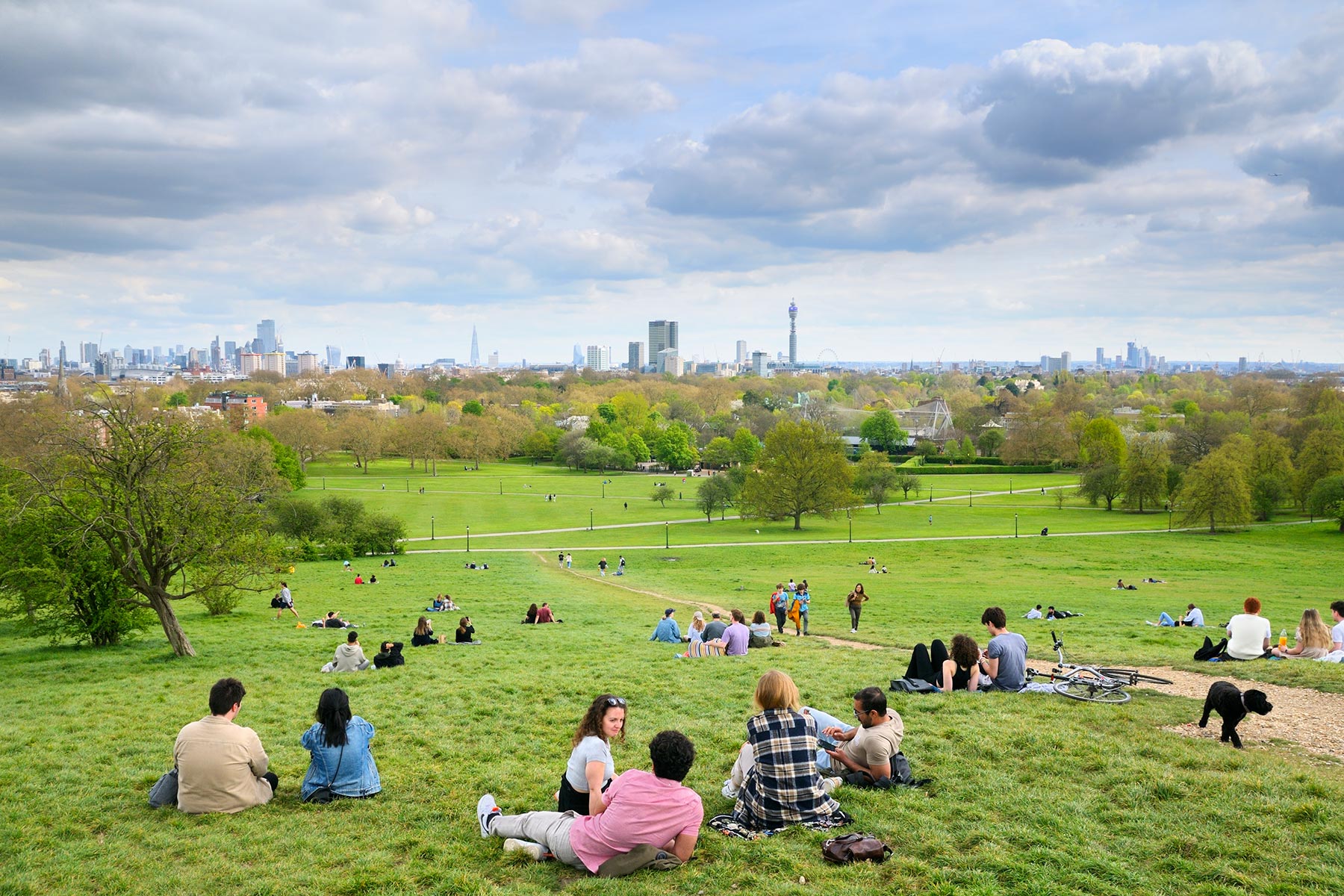
The UK is a multicultural nation with communities of people from various heritages, particularly in the big cities. All citizens have equal rights, but discrimination is still an issue. Although British attitudes towards immigration have softened over the decades, asylum seekers are among the most marginalized groups and are frequently demonized in the media and by politicians.
Attitudes towards women and gender roles in the UK
Attitudes to women are generally progressive throughout the UK, although gender-based disadvantages persist. British women are legally entitled to the same economic, political, and social rights as men. Labor laws treat them equally, they have the same rights as men to marry and divorce, and abortion is legal.
However, women carry out the majority of unpaid work in terms of childcare and domestic chores. Furthermore, they still earn 7.7% less than men (2023). Women are entitled to more parental leave than men but statutory maternity pay remains well below wage replacement levels. Violence towards women is still an issue, with nearly one-quarter (24%) of UK women experiencing gender-based violence in their lifetime (OECD, 2023).
The UK ranks 15th globally and 10th in Europe on the 2023 Global Gender Gap Report. If you are an expat woman moving to the country, you can generally expect good treatment and relatively low levels of harassment and discrimination based on your gender.
What is the British etiquette when meeting and greeting people?
When meeting people in the UK, the handshake is the most common form of greeting. This should be light and not too firm. The cheek kiss, which is popular across Europe, is also becoming part of British etiquette. Close friends and family members often embrace.
‘Hi’ and ‘hello’ are two of the most used English greetings, along with ‘pleased to meet you.’ If you want something suitable for more formal occasions, you can say, ‘How do you do?’ Although this sounds like a question, it’s just a formality, and the other people will usually just repeat it back to you. If someone greets you with ‘how are you?’ it’s best to keep your answer short and positive and ask how they are, too.

People are generally comfortable using first names, but in some formal situations, they may prefer surnames prefaced with a title. It is common for hospitality and retail staff to address customers using simply ‘sir’ or ‘madam,’ although many organizations aim to use more gender-neutral language.
In certain situations where you meet those with high status, for example, royalty or nobility, you can bow from the neck or curtsy (gently bend the knees with one foot forward). However, you can usually replace this with a handshake if you prefer.
Punctuality
The Brits are generally quite punctual. Avoid being late for public meetings, special occasions, appointments, or formal dinners. In fact, it’s normal to arrive 5–10 minutes early for these. For group gatherings such as parties or receptions, it’s more acceptable to show up when it suits you.
British people often use expressions such as ‘drop in any time,’ but be wary of taking that too literally with home visits. Although it’s acceptable to visit a close friend’s home randomly, people usually call ahead. If you receive a written invitation to something that says RSVP (from the French Répondez, s’il vous plaît), you should reply as soon as possible to say whether or not you’ll be attending.
Conversation and communication in the UK
Communication style in the UK varies across the country. For example, the stereotype about British etiquette is that people are polite, reserved, and indirect in their communication. However, in areas such as northern England and Scotland, locals have a reputation for being more open and direct.
If you can speak English and want to fit in anywhere across the UK, good topics of conversation include sports (particularly football), weather, TV, music, food, drink, or chit-chat about the local area. Heavier subjects such as politics and religion are not off-limits, but it’s a good idea to let someone else bring them up first. Brexit was once a hot topic, but most people are tired of talking about it now.
British people are fairly private, so avoid asking personal questions about money or a person’s age. Also, it’s considered very bad etiquette to interrupt someone or talk over them.
Brits have a reputation for being masters of the understatement. Expect to frequently hear words such as ‘quite’ when people describe things. In general, British people are indirect communicators who don’t always say exactly what they mean and sometimes put things in a roundabout, elongated way. Newcomers to the country eventually learn to read between the lines and that ‘not bad’ is actually a compliment!
When writing a formal letter in the UK, start the correspondence with ‘Dear [name].’ If you don’t know their name, you can use ‘Dear Sir or Madam,’ or the gender-neutral ‘To Whom It May Concern.’ Alternatively, using the person’s job title (e.g., ‘Dear Hiring Manager,’) can also work.
If you’ve used someone’s name, end the letter with ‘Yours sincerely, [your name].’ Otherwise, sign off with ‘Yours faithfully, [your name].’ In a formal email, ‘Kind regards’ is often used.
What are common types of body language in the UK?
British people are somewhat less expressive with their body language than, say, Italians and Spanish people. Hand gestures tend to be a vague accompaniment to speech rather than meaning anything specific. However, some of the more widely accepted signs are:
- Thumbs up – a sign of approval
- A shoulder shrug with palms facing outwards – uncertainty or confusion
- Making a circle with thumb and index finger with remaining fingers outstretched and upwards – signaling that something is excellent or perfect
- Tapping the side of the nose with index finger – indicating that something is secret or confidential

Avoid sticking the two main fingers up with your palm facing you (a sort of reverse victory/peace V sign) as this is offensive in the UK – some people find it as insulting as sticking your middle finger up at someone. Not good British etiquette!
In terms of general body language, Brits are pretty reserved. Eye contact should be used sparingly, and people appreciate about an arm’s length of personal space. Casual touching of arms or shoulders is fine when you know someone, but bear in mind that the British tend not to be touchy-feely.
Smiling is a good way of showing that you’re paying attention to someone in the UK, but, as with eye contact, don’t overdo it. Light and occasional smiles are best – having an overly enthusiastic permanent grin on your face in the UK is likely to make people think you’re ridiculing them.
Is there a distinct British sense of humor?
The UK is well-known globally for its comedy. Many British sitcoms and stand-up comedians are successful global exports, including Mr Bean, Fawlty Towers, The Office, and Keeping Up Appearances. Some of these revel in poking fun at stereotypical British etiquette.
British people rely on humor as a glue to hold social situations together. Making a joke rarely goes down badly unless in very poor taste. Brits tend to be very self-deprecating and gently use their sarcasm to ridicule themselves and others. People won’t mind you poking fun at yourself or others as long as it’s done without malice and you’re not targeting someone’s vulnerabilities.
Other popular comic styles across the UK include slapstick, observational comedy, absurdism, dry humor, and macabre humor. Toilet humor also goes down well, although you might want to read the room first and avoid anything too vulgar in unfamiliar or formal situations. Meanwhile, racist, sexist, and homophobic jokes are best avoided.
Clothing and dress code in the UK
Liberalism prevails when it comes to clothing in the UK, and there are few limits or restrictions on how to dress, especially in London, Bristol, and other big cities. On British streets, expect to see all styles of dress, including casual jeans and sweaters, smart suits, experimental fashion trends, and traditional garments from other cultures. Basically, you can get away with wearing what you want within reason, and shops on British high streets cater to all styles.
If you want to go with the flow and not stand out like a sore thumb, avoid anything too revealing or inappropriate for the weather (which can be difficult in a country where you often get four seasons in one day!). Also, avoid anything bearing offensive or controversial slogans.

Senior Editor
Sarah Fairman
Insider Tip
British women like to dress to impress when going to nightclubs. You’ll likely come across women in short dresses and high heels, whatever the weather. If you’re not sure what to wear, text a British friend to ask what the vibe is – part of the fun of a night out is discussing your outfits beforehand.
British people aren’t generally big on dressing up for recreational activities such as going to the pub or a restaurant. Clothing etiquette is more about looking good than following sartorial rules.
Formalwear is reserved for office jobs, important meetings, weddings, and funerals. Men typically wear dark suits, light shirts, and smart shoes. Women wear suits with trousers or skirts or smart dresses, sometimes with heeled shoes. In Scotland, you might see men wearing traditional national dress consisting of tartan kilts and knee-high socks at formal occasions such as weddings.
What is the British etiquette when dining?
British mealtime etiquette depends on whether you have dinner at someone’s home or meet at a restaurant. It also varies according to the type of cuisine. If invited to a house dinner party, it’s acceptable to arrive up to 15 minutes after the invitation time, but you should be punctual for restaurant dates.
Restaurant meals are common venues for business lunches and social gatherings across the UK. Dinner parties in people’s homes are also popular but are often informal compared to other countries.
Food could be a traditional British meal or international cuisine such as Italian or Thai. British people typically drink alcohol during a social dinner, followed by tea or coffee after dessert. If you’re dining with a small number of people (five or fewer) and drinks are bought separately from the meal, it’s customary for each diner to take turns to buy a round of drinks.
Tea-drinking is something of a national pastime in the UK, and there have even been songs about the nation’s reliance on it. The most common variety is black tea, usually with a splash or two of milk. When making a cup of tea, it’s polite to offer to make one for the other people around you.
Table manners in the UK
The Brits hold their cutlery continental style, with the fork in the left hand and the knife in the right. However, it has become more acceptable for left-handed people to swap this and hold the knife in their dominant hand. At formal events with multiple utensils, the convention is to start from the outside and work your way in.
You should also follow the following tips:
- Wait for the host (if there is one) to seat you and for everyone to be served before starting to eat.
- If a napkin is provided, either place it on your lap or tuck it into your collar. Never blow your nose into it at the table!
- With shared dishes, offer to serve offers before helping yourself – the same goes for water or wine.
- Keep your mouth closed while chewing food.
- Place your utensils together, parallel in the 12 o’clock position on your plate to signal that you have finished eating.
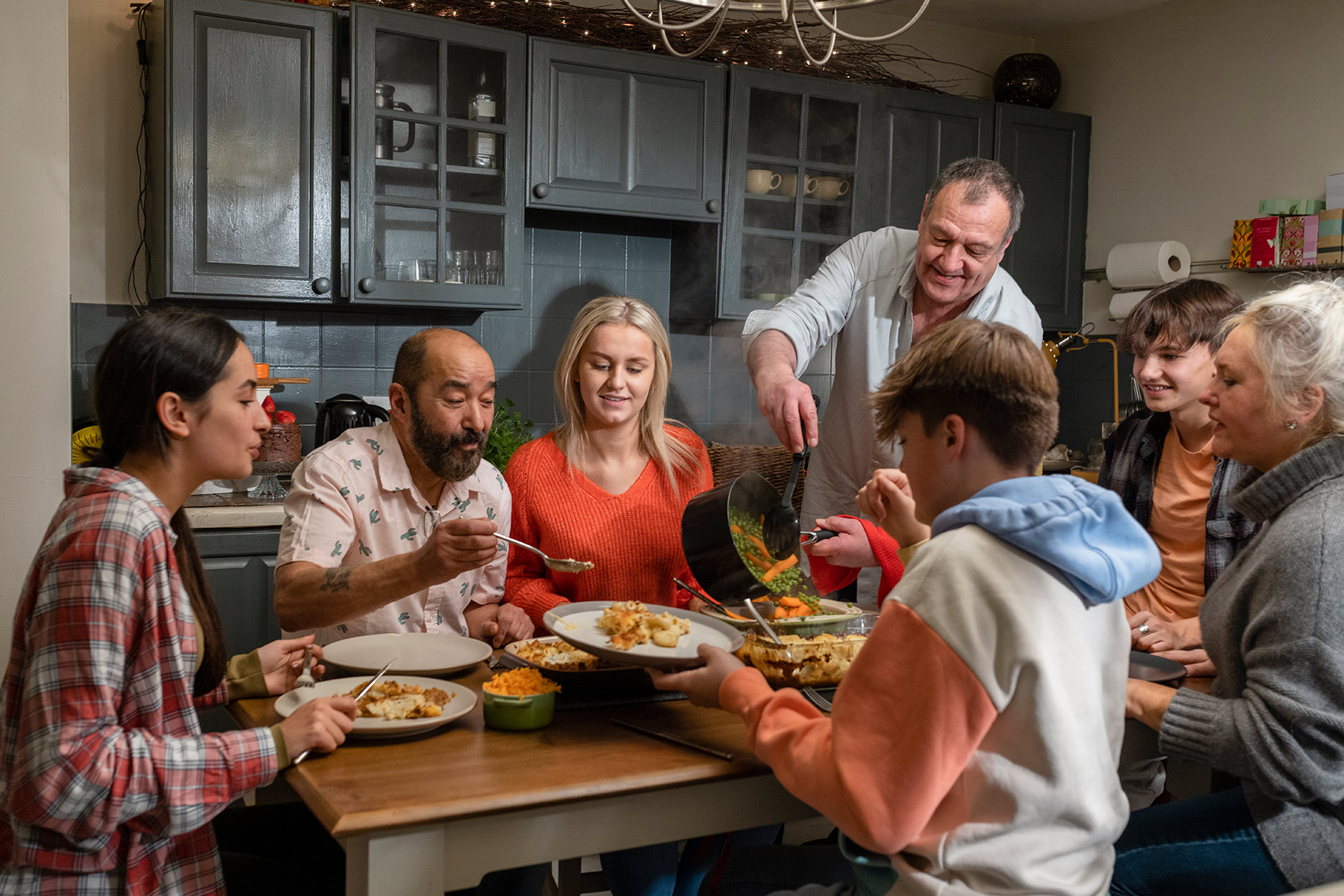
Behaviors to avoid include:
- Talking with your mouth full
- Placing your elbows on the table
- Using your fingers instead of utensils unless handling bread or buffet-style food
- Reaching over the plate of the person seated next to you
- Putting your knife in your mouth
There are sometimes toasts at formal meals – the host will usually offer the first one, after which anyone can add their own. You can initiate a toast by holding up your glass and saying, ‘Let’s raise a glass to…’. Guests then respond by raising their glasses and saying, ‘cheers.’ In less formal environments, anyone can hold their glass up and offer a casual ‘cheers’ when drinks are served. Everyone else usually follows suit.
To summon a waiter in British restaurant, raise your hand and nod – shouting to get their attention might get you some dirty looks. As standard, guests split the bill evenly unless alternative arrangements have been made.
How do people socialize in the UK?
If you move to the UK, you’ll have plenty of chances to socialize and meet new people. People gather at a variety of places, including pubs, cinemas, restaurants, sports events, concerts, art galleries, and parks. Towns and cities have their own event schedules, including local festivals, and you can also find clubs such as orchestras, amateur dramatics societies, dance classes, and walking groups. Bigger cities with larger migrant populations may also have expat community groups.
Although drinking alcohol is commonplace in all British countries, and there is no shortage of bars and nightclubs, the UK has lower than average alcohol consumption rates in Europe despite having gained something of a reputation on the continent. According to OECD statistics from 2018, Brits drank 9.8 liters of alcohol per person. This is compared to the EU27 average of 10.1 liters. When out with friends, it’s perfectly acceptable to ask for a non-alcoholic drink – the percentage of non-drinkers has been steadily rising in recent years.
Relationships in the UK
The UK has a big dating culture among single people, which has grown over the past 10–15 years with the popularity of online dating. Norms aren’t that much different from elsewhere in Europe – slightly more informal, if anything. Bars and cafés are the most popular first-date venues, with cinemas, restaurants, parks, concerts, and museums among other frequented early-date locations.
The speed at which relationships progress varies across couples. In general, a relationship might become serious after four or five dates if there is mutual affection. At this point or soon after, you can expect to meet immediate family and close friends. It’s fairly common for couples in a lengthy relationship to live together in the UK, and people might move in together from a year or so onwards.
In general, couples in the UK have a fair degree of independence from their parents, although they usually retain close relationships with them. You can expect to see the potential future in-laws on a weekly or monthly basis on average, depending on geographical distance. Male partners still often seek parental blessing before proposing.
Marriages in the UK remain commonplace but are declining. 46.9% of adults in England and Wales were married in 2021, compared to 49.1% in 2011. Same-sex marriage was legalized in most UK countries in 2013 (in 2020 for Northern Ireland).
Brits tend to be reserved when it comes to public displays of affection. Expect to see plenty of gentle kissing, cuddling, and hand-holding but not too much overt public intimacy, which tends to be seen as distasteful.
What are the most common occasions for celebration in the UK?
The most popular celebrations in the UK are birthdays and Christian religious festivals (Christmas and Easter). Other religious festivals are also commemorated with public and private events, for example, Eid, Diwali, and Hannukah.
Christmas celebrations on 25 December include gifts and a roast dinner (usually turkey). Brits put Christmas trees, decorations, and festive lights in their homes from early December until early January. There is an additional celebration on 26 December (Boxing Day), traditionally a holiday for servants and other workers who had to carry out duties on Christmas Day. Nowadays, people across the UK take this day to feast on Christmas leftovers.
Easter lasts a long weekend from Good Friday until Easter Monday. It falls between late March and late April, depending on lunar calendar dates. Celebrations usually include chocolate eggs and ‘Easter Egg hunts,’ particularly for young children.
Other celebratory dates in the UK include:
- Valentine’s Day (14 February) – when couples buy each other gifts or have a romantic meal
- Mother’s Day (three Sundays before Easter) and Father’s Day (third Sunday in June) – when children honor their parents
- Shrove Tuesday – also known as ‘pancake day,’ celebrated 47 days before Easter Sunday with a pancake meal
- Hallowe’en (31 October) – celebrated on the eve of All Saint’s Day with spooky fancy dress and decorations along with pumpkin jack-o-lanterns
- Bonfire Night (5 November) – also called Guy Fawkes Night, commemorates an attempt to blow up the English parliament in 1605. Surprisingly enough, celebrations include fireworks displays and large bonfires!
- Remembrance Sunday (closest Sunday to Armistice Day on 11 November) – honoring those who died in the two world wars with public events, two-minute silences, and displaying a paper poppy on one’s shirt.
- New Year’s Eve (31 December) – Brits celebrate the end of the year and welcome the new year, usually with parties, fireworks, and champagne toasts.
Birthdays in the UK
British people celebrate birthdays with cards, cakes, gifts, and social gatherings. It is typically up to the individual having the birthday to decide on the level of celebration, although friends or family members may plan surprise parties for landmark birthdays.
The most important birthdays in the UK are 18, 21, and then any subsequent multiple of ten (30, 40, etc.). Many people also make the 75th birthday a special one. If you happen to reach the milestone of 100 years, you usually receive a telegram from the ruling monarch.

If it’s your birthday, you will normally receive cards, gifts, plus drinks if you’ve arranged a day or night out. However, in some workplaces, the person whose birthday it is brings in cakes for everyone. If you work in such a place and phone in sick on your birthday, prepare to get a reputation for being a bit stingy!
Children’s birthday parties are common in the UK, taking place either at home or in a venue such as a community center or soft play area. In addition to presents and cakes, parties typically involve kids’ snacks, games, and sometimes entertainers such as magicians.
Like in many countries, at some point, guests will sing the Happy Birthday song and present a cake decorated with candles (usually matching the number of the child’s age), which the child blows out. This custom sometimes continues into adulthood.
Gifts in the UK
Aside from birthdays and Christmas, it is good British etiquette to bring a small gift when invited to someone’s home for a dinner party or social event. This is typically something like wine, chocolates, food, flowers, or a small ornamental gift. You can present this as soon as you arrive and the host will open it in front of you.
If you enjoy the social occasion, feel free to express your gratitude with a follow-up thank you card, short letter, or telephone call over the next few days. Under-40s usually send a text message.
Is there a distinct work and business culture in the UK?
British business culture is rather diverse, varying across sectors, geographical areas, and business size. The UK attracts many foreign workers and has a multicultural workforce. Businesses range from top multinational corporations to small family-run enterprises.
Most British businesses are hierarchical, with clearly defined levels of seniority based on qualifications and experience. Top management usually makes key decisions. You can expect detailed planning and organization, with many meetings and multi-year plans. Politeness and punctuality are invaluable.
UK business culture is also competitive. Workers in most sectors often put in long hours and struggle to maintain a good work-life balance. However, those on contracts have regulations for holiday entitlements and protections thanks to labor laws. In recent years, there has been a shift towards flexible and remote working with office and white-collar jobs.
Shopping and services in the UK
Shopping is a popular British pastime. Many people treat a trip to the high street as a fun day out and enjoy unwinding with a little ‘retail therapy.’ Besides high streets, you can shop in large shopping malls, purpose-built retail parks, and pop-up marketplaces.
British businesses pride themselves on good customer service and strive for repeat custom. Many adhere to the mantra ‘the customer is always right.’ 86% of UK businesses track customer service performance.
However, people reciprocate good manners and friendliness. Most Brits find rudeness to shop staff poor etiquette, so try to keep your cool even if you feel you’ve received bad service.
Queuing in the UK is something of a national sport. Brits form orderly lines for just about everything, and pushing in is one of the biggest social faux pas you can commit. People queue for hours, sometimes even days, for big concerts or hot new product releases such as new edition mobile phones.
Common good manners when queueing include reserving someone’s place if they need to leave temporarily for a toilet break and allowing the person behind you in a supermarket line to go first if they only have a couple of items and you have a full shopping cart.
Do British people tip?
Tipping in the UK is optional. People often tip in restaurants, cafes, and other places where you receive table service. It’s also common to tip taxi drivers, tour guides, and takeaway delivery drivers.
You can tip in the UK with cash or by adding an amount to your card payment. The standard amount is around 10–15%; sometimes people just round up a bill to the nearest £5–10.
Some restaurants and cafes add a service charge to their bill, so you might want to check this before applying any additional tip.
Regional variations
The most pronounced cultural variations in the UK are between the four individual nations of England, Wales, Scotland, and Northern Ireland. Each has its own parliament, health service, and education system, although the English parliament and services are the central, country-wide institutions.
Furthermore, each nation has its own distinct culture and native language. They all have a profound sense of national identity and pride – there is a strong independence movement in Scotland, with a referendum on full national independence as recent as 2014. In general, Scottish, Welsh, and Irish people have a reputation for being less reserved, more direct, and perhaps friendlier than their English counterparts.
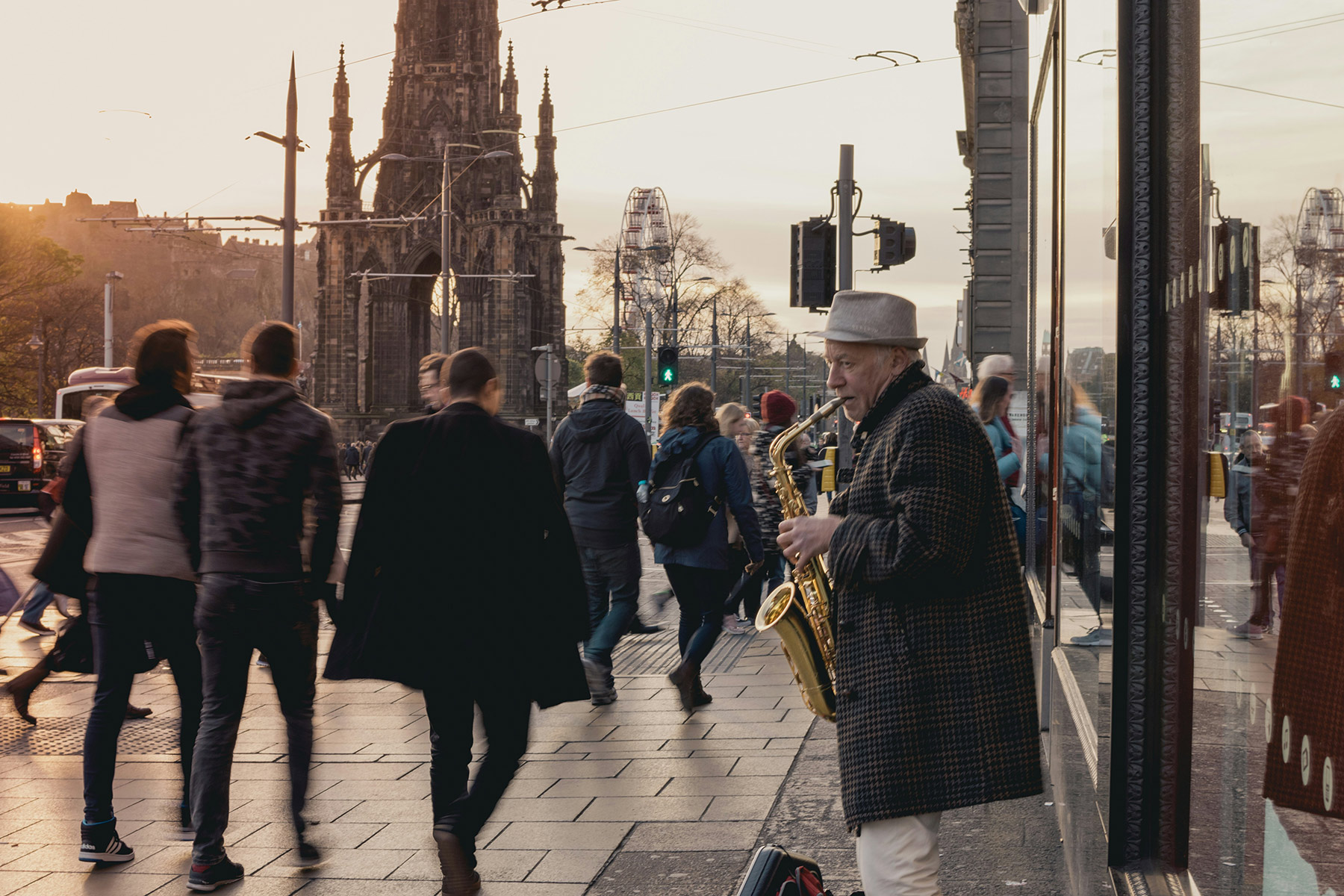
In addition to this, there is also a north-south divide in England. Northerners tend to be viewed – and definitely view themselves – as more direct and accommodating than southern residents. There is also a stereotype that southerners are ‘softies’ and don’t have the same work ethic as those in the north.
This is partly due to the English class divide which plays out across north and south. Traditionally, big northern cities such as Manchester, Liverpool, Newcastle, and Sheffield were working-class industrial hubs. This contrasts with London, one of the wealthiest cities on the planet, and the southern rural areas of England, which are more expensive than elsewhere in the country.
Useful resources
- GOV.UK – UK government website
- Scottish Government – official website
- Welsh Government – official website
- NI Direct – website for citizens in Northern Ireland
- Visit Britain – official tourism website
